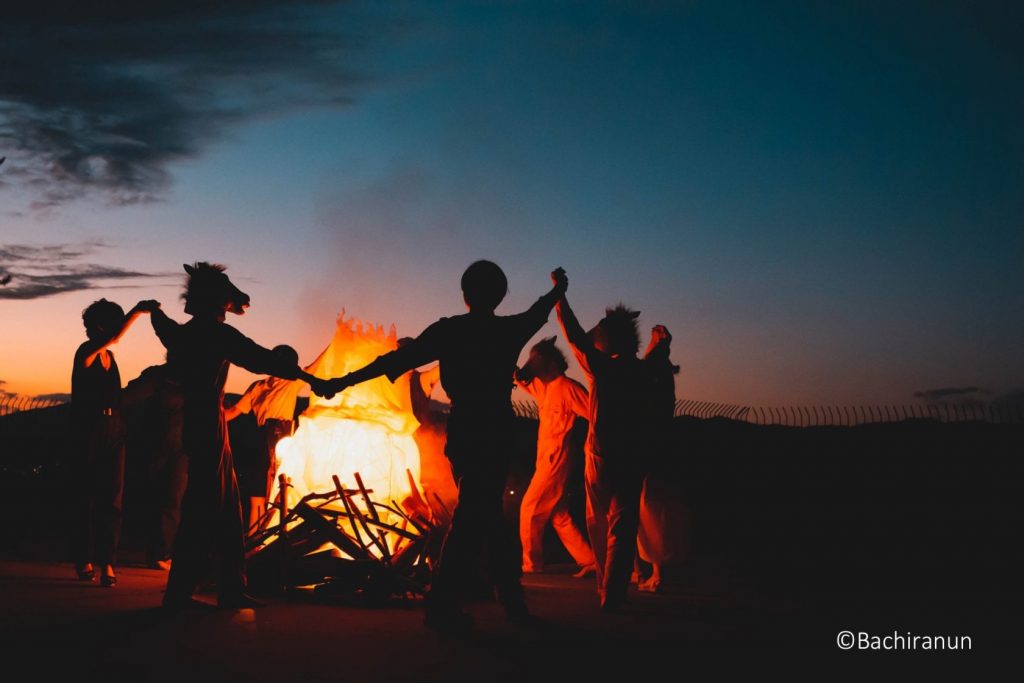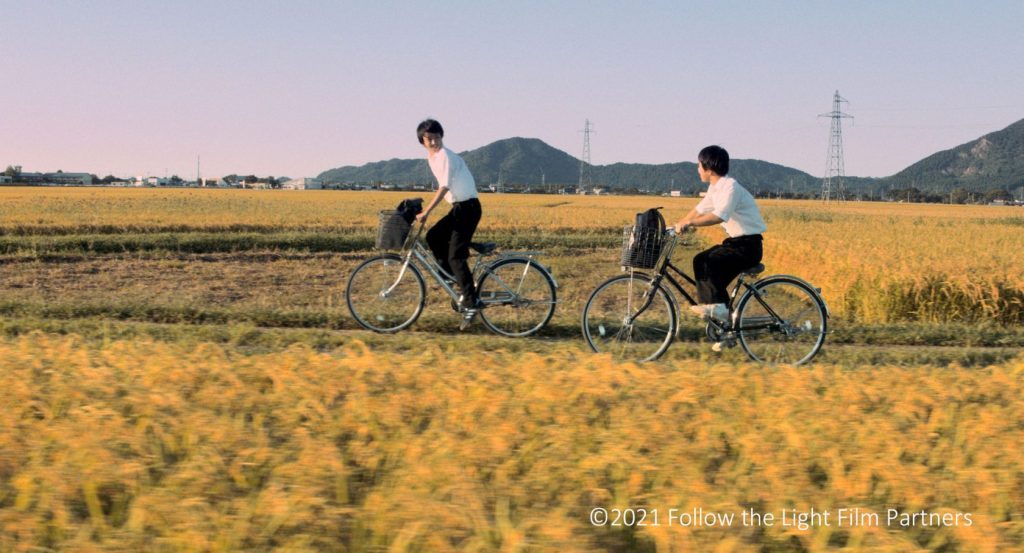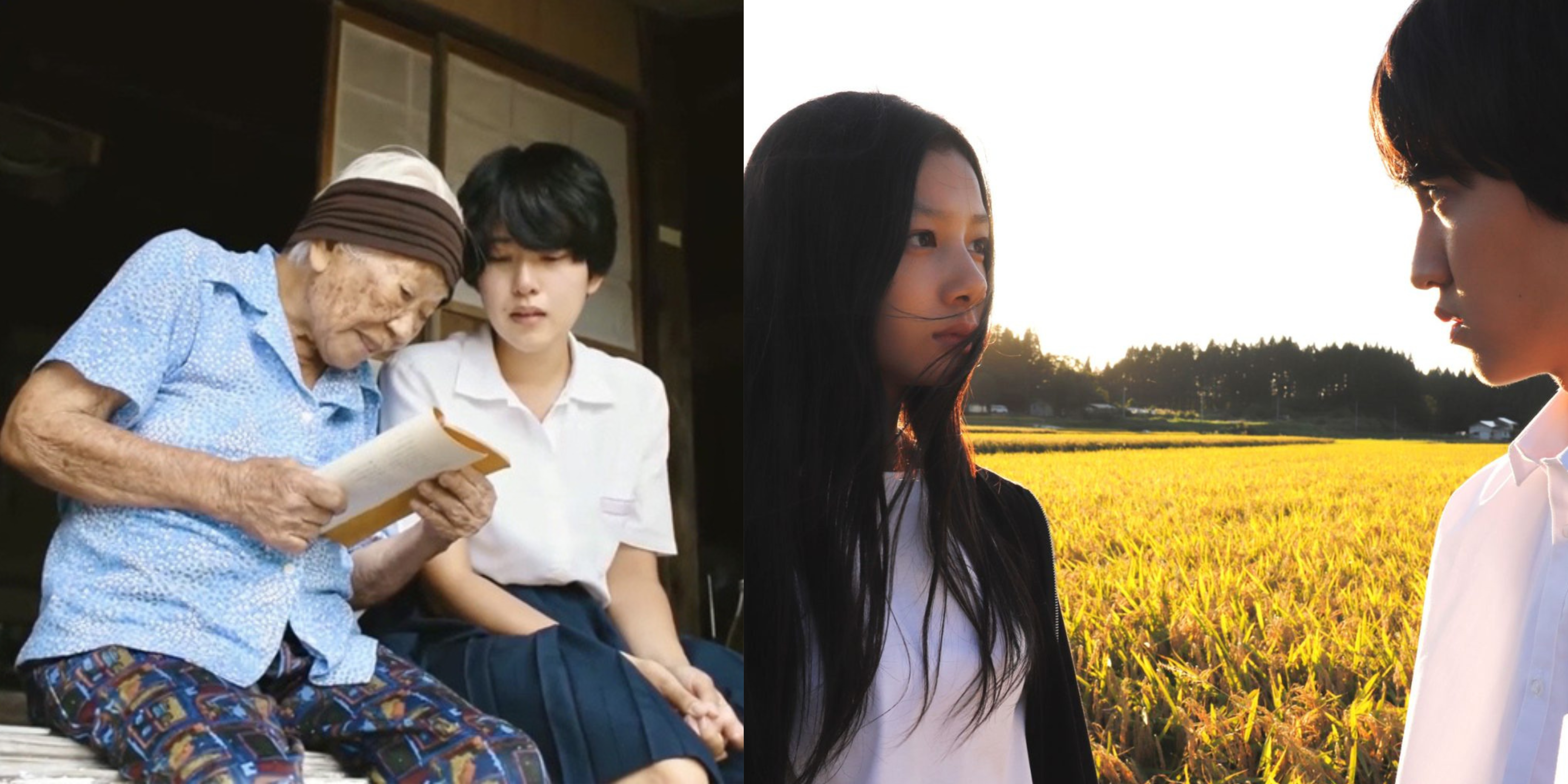John Tawasil reviews ‘Bachiranun’ and ‘Follow the Light’, two of the films featured in this year’s Japanese Film Festival – Independent Cinema.
Yonaguni is the westernmost inhabited island of Japan, only a short distance away from Taiwan. It has a language that is distinct from Japanese and is spoken by around a few hundred people.
In the Yonaguni language (Dunan Munui), “bachiranun” means “never forget.” And in Yonaguni native Aika Higashimori’s debut film of the same name, she takes that phrase to heart: devoid of plot and composed mainly of various scenes and vignettes of island life, Bachiranun exists as a memory of a place slowly fading.

Higashimori blends documentary footage of Yonaguni island residents going about their day with fictional elements and striking visuals: a post box in the middle of a river, delivering life-giving water. Bones in a hollow pit. Tattoos passing from one hand to another – the “torch” of memory lighting another. “I wonder if you will remember us,” one woman tells the other. It’s a question left up in the air, though this film itself, as an externalization of memory, may be the answer.
There are also accounts by various Yonaguni islanders, including Higashimori’s grandmother, of a history of oppression and how disparate cultures are marginalized and homogenized into the whole. “Our people are on the verge of death,” she sings. They used to do rituals all the time, but the younger generation no longer does such things. The idea brings Higashimori to tears.
Near Yonaguni Island, under its bountiful waters, there is a stone monument or pyramid. Near that is one shaped like a turtle, perhaps a deity once worshipped and now long forgotten. Turtles feature prominently in Bachiranun, a symbol of the enduring presence of the divine even when no one remembers. Near the end, a woman tells the turtle, “remember that the road has holes and gravel; we have no choice but to walk.” It’s a hopeful statement, one that considers the act of remembering as an earnest, perseverant prayer; a dream of one’s self, etched forever.
How do we face the inevitable death of a dying land? Do we escape from it and hide in our own fantasies? Do we give in and let the light fade out? Or do we keep the flame burning, no matter how faint?

Akira (Tsubasa Nakagawa) feels like an alien, a stranger in a strange land. Following the failure of his father’s musical career in Tokyo and a messy divorce, father and son return to their hometown in Akita to start anew. Akira has trouble fitting in, and his classmates won’t be there for long: because of rampant rural depopulation, the only middle school in the area closing in a month, give or take. During one aimless day, he comes across a mysterious girl (Itsuki Nagasawa) standing on a rooftop. He meets and forms a connection with the girl, Maki, and finds out more behind her strange circumstances.
The appearance of a UFO serves as the catalyst to the events of Yoichi Narita’s Follow the Light. Its mysterious light reaches people all throughout the sleepy town in which it is set: Akira’s teacher (Rina Ikoma) feels helpless towards her students as the town grows even more desolate – during a tense nomikai, her distraught coworkers cannot help but lament the end of their school. Maki’s uncle and adoptive father is on the verge of selling his land and farming equipment because there simply isn’t any profit to gain from it, and Akira’s own father becomes a public servant to give a fighting chance to the people of the town, even though opportunities are growing scarce.
Follow the Light is a tribute to the idea of furusato – a word that connotes one’s hometown mixed with a warm feeling of nostalgia… Or rather than just a tribute, perhaps a tribute to the idea of furusato persevering – in the memories of those who leave, and through the actions of those who stay. Even in the bleakest of times, even when the end seems inevitable – as long as one “follows the light” and lives on, it’s more than enough.
Thematically the film shares many facets with the earlier Bachiranun – in that while the film’s ending has its characters facing an uncertain future, it’s also full of hope. And while all things inevitably pass into memory, that “place” will always remain in the hearts of the people who lived there and shared that moment together.
Watch these two films in this year’s Japanese Film Festival – Independent Cinema here.



